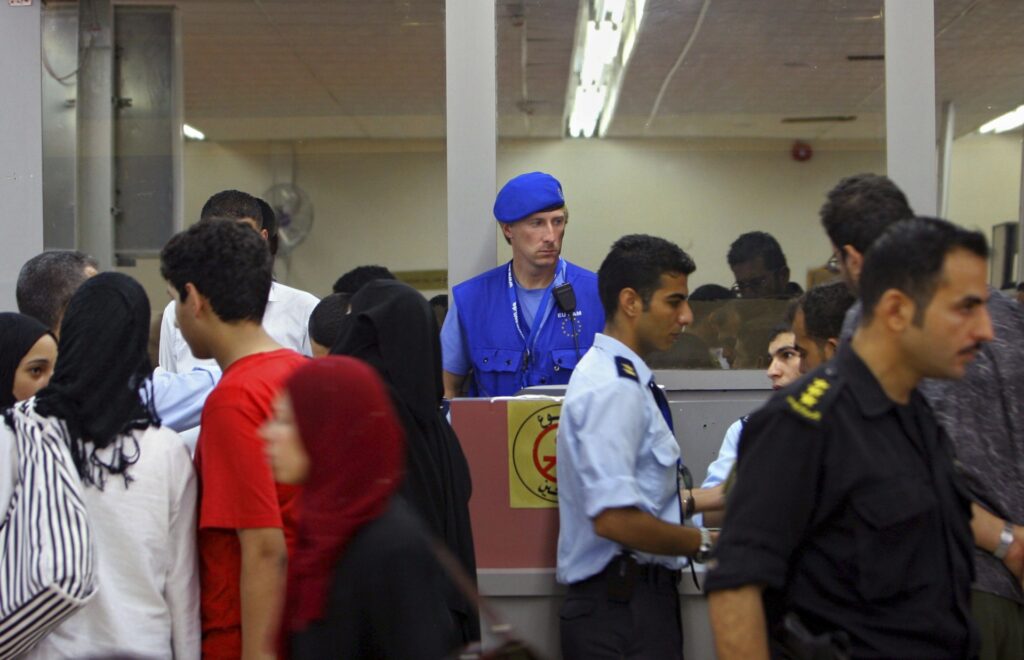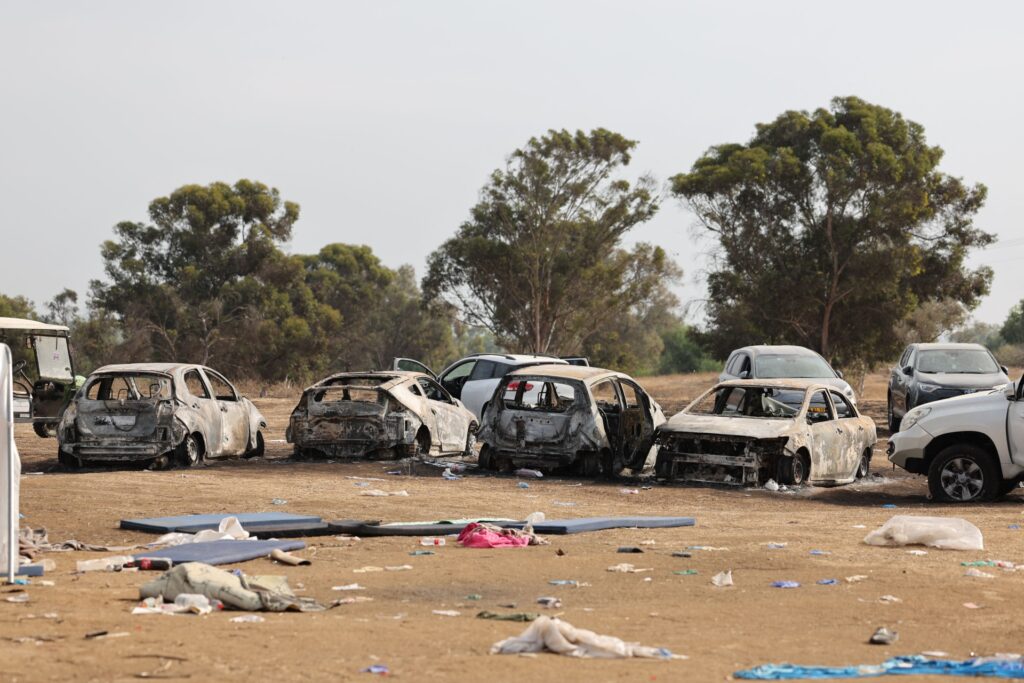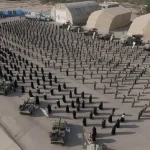
Egypt, the other country besides Israel that borders Gaza, moved quickly this week to fortify its border and prevent a flood of Palestinians from entering Egyptian territory during Israel’s counteroffensive against Hamas.
The Israeli military suggested on Tuesday that Palestinians who do not wish to be used as human shields by the Hamas terrorists should flee across the Egyptian border. Israeli Lieutenant-Colonel Richard Hecht rescinded that advice later on Tuesday.
“Clarification: The Rafah crossing was open yesterday, but now it’s closed,” Hecht said.
The Rafah crossing was evidently shut down because Israel dropped several bombs near it. The Israeli Defense Force (IDF) said on Tuesday it conducted airstrikes against a tunnel in the vicinity of Rafah used by Palestinian terrorists to smuggle weapons and equipment. The IDF warned officials in Gaza and Egypt that the strike against the tunnel was coming.
“In recent days, the IDF has been instructing the population inside of the Gaza Strip to distance themselves from designated areas. We emphasize that there is no official call by Israel for residents of the Gaza Strip to exit into Egypt,” the IDF said on Tuesday.
Egyptian officials were reportedly miffed that the Israeli military told Palestinians to flee into Egypt, while Gaza residents were angry at Egypt for cutting off a means of escape.
“Interior Ministry, this is not the time to put someone in danger who survived a bombing and miraculously reached the crossing. We cannot return to death,” one resident wrote on the Facebook page of the Rafah crossing.

A European Union observer watches Palestinians pass from Egypt into the Gaza Strip at the Rafah border Tuesday, July 18, 2006. (AP Photo/ Khalil Hamra, File)
The Israeli strike near the crossing forced trucks loaded with fuel and other goods for Gaza to turn back into Egypt. The Palestinian Interior Ministry said workers were instructed to leave the area for their own safety by Egyptian officials.
Ahmed Salem of the Sinai Foundation for Human Rights told Reuters on Wednesday morning that the Rafah crossing was still closed, Egyptian military aircraft were flying overhead, and Egyptian ground units had moved closer to the border. The Egyptian government said ambulances have been prepared for possible medical evacuations from Gaza.
“So far, there has been no sign of mass gatherings of Palestinians at the Rafah crossing, with only scheduled departures proceeding until Tuesday,” Reuters reported.
Egyptian security officials said on Wednesday they have discussed setting up humanitarian aid corridors into Gaza, but categorically rejected allowing Palestinian refugees to flee into Egypt.
“Egypt was keen to open the Rafah crossing to provide humanitarian aid, food and medicine, but instability and the expansion of the conflict leads to more hardship and more refugees to safe areas, including Europe,” complained Egyptian Foreign Minister Sameh Shoukry.
The Egyptians have sealed their border with Gaza during several previous bouts of unrest and, like most Muslim countries, they constantly push Israel for a “right of return” that would pack even more Palestinians into Gaza by bringing back the descendants of those who left when the state of Israel was established in 1948.
Insisting on the “right of return,” a demand Israel will never grant, is a convenient way for other regional powers to refuse to accept Palestinian migrants, even as they insist on their undying affection for the “Palestinian people.”
Egypt’s territory on the other side of the Gaza border has a history of terrorism problems, including vicious clashes between Egyptian troops and militants aligned with ISIS and al-Qaeda. The Israelis assisted Egypt with a campaign against Islamist terrorists in 2018.

Hamas gunmen killed around 270 revelers who were attending an outdoor music festival in an Israeli community near Gaza at the weekend, a volunteer who helped collect the bodies said on October 9. (JACK GUEZ/AFP via Getty Images)
Hamas, the perpetrator of Saturday’s unspeakable atrocities, is a creation of the Muslim Brotherhood’s Palestinian branch. The Muslim Brotherhood briefly ruled Egypt after the fall of longtime military dictator Hosni Mubarak during the “Arab Spring” chaos of 2011, until current Egyptian leader Abdel Fattah el-Sisi took power in a 2013 coup. Cairo has solid reasons to fear that an influx of Palestinians, possibly salted with Muslim Brotherhood and Hamas operatives, would cause a security crisis on its side of the Rafah crossing.
The U.N., normally very enthusiastic about opening borders to large numbers of refugees, seemed content with Egypt’s refusal to accept any Palestinians. U.N. Secretary-General Antonio Guterres thanked Egypt for “constructive engagement to facilitate humanitarian access through the Rafah crossing and to make the El Arish airport available for critical assistance,” but said nothing about refugees.
“Civilians need to be protected. We do not want to see a mass exodus of Gazans,” said Guterres spokesman Stephane Dujarric.
Two Biden administration officials told NBC News on Tuesday that the U.S. is working to establish a “southern corridor leading into Egypt” through which Americans can escape from Gaza as the fighting intensifies.
According to these same sources, President Joe Biden was “more direct than in previous calls” when he told Israeli Prime Minister Benjamin Netanyahu to avoid “excessive force resulting in the deaths of women, children, and noncombatants,” especially since there appears to be no route for any large number of Palestinian civilians to flee Gaza.
The Times of Israel (TOI) recalled Biden reportedly taking a similar “arm around Israel” approach during the May 2021 war in Gaza, offering full-throated public support for the Israelis while privately telling them to limit civilian casualties and wrap up their military operation as quickly as possible.





